
Find Help
More Items From Ergsy search
-

Are there different types of heart failure?
Relevance: 100%
-
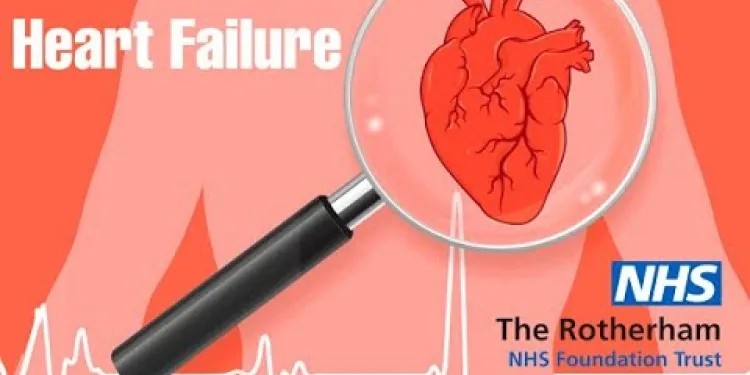
Heart Failure : Symptoms of heart failure
Relevance: 90%
-
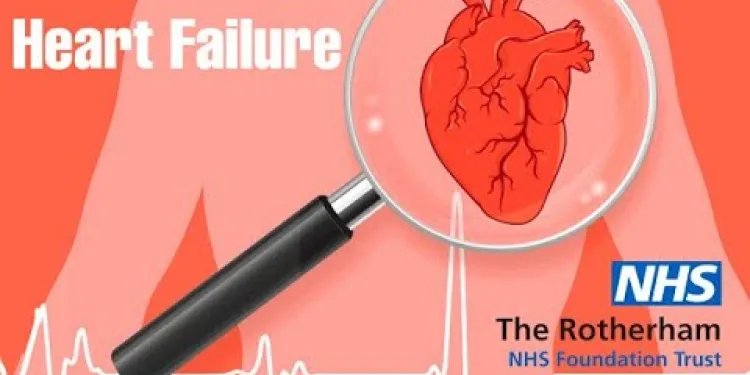
Heart Failure : What is heart failure?
Relevance: 88%
-
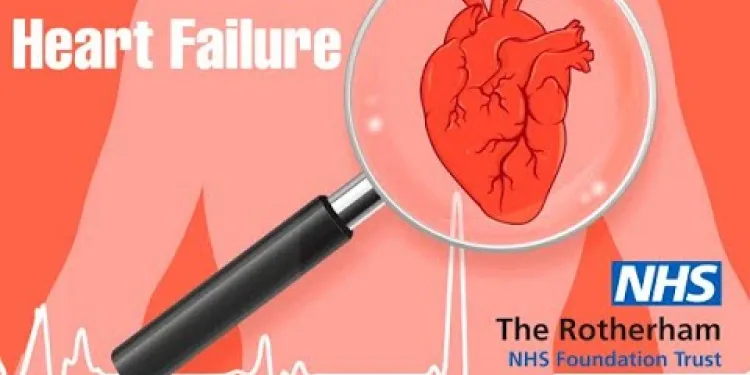
Heart Failure : Heart failure that cannot pump
Relevance: 85%
-

Heart Failure : The normal heart
Relevance: 83%
-
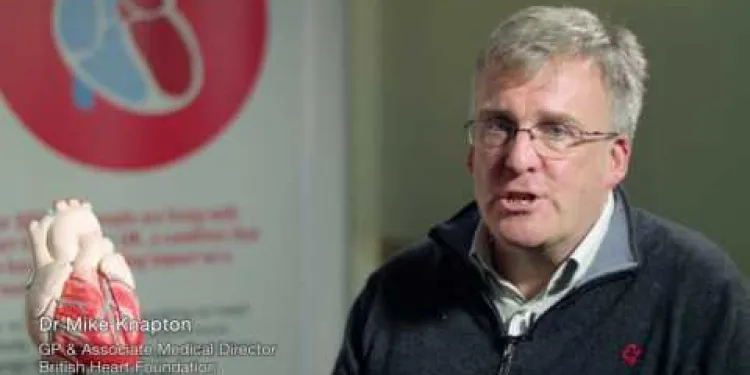
Heart failure introduction
Relevance: 81%
-

What causes heart failure?
Relevance: 81%
-
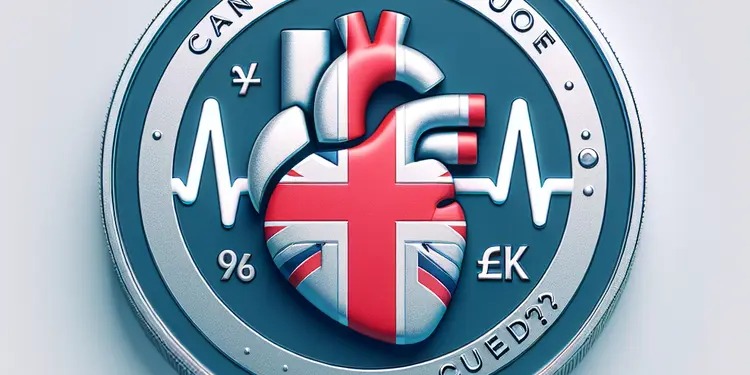
Can heart failure be cured?
Relevance: 78%
-
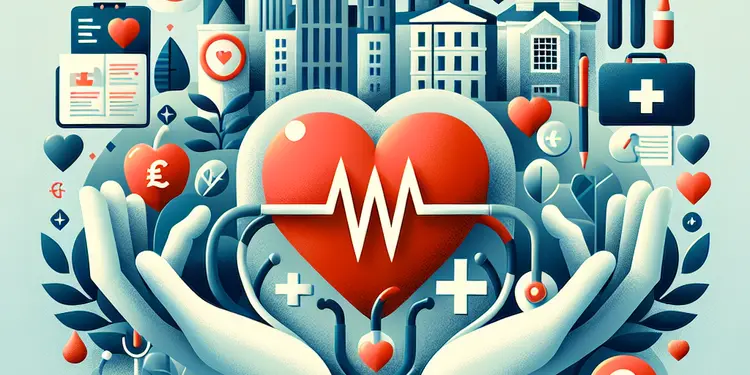
Can heart failure be prevented?
Relevance: 78%
-
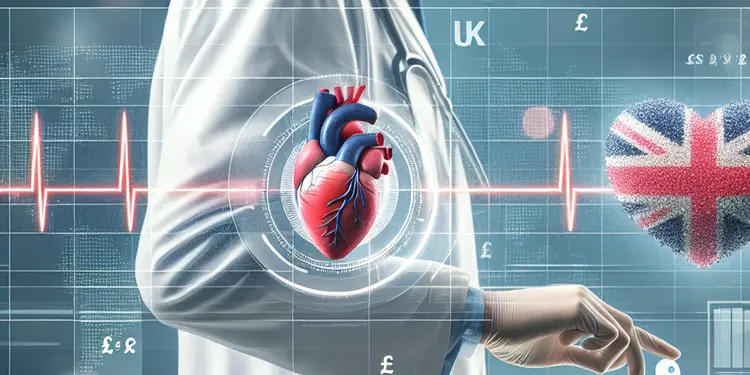
How is heart failure diagnosed?
Relevance: 78%
-
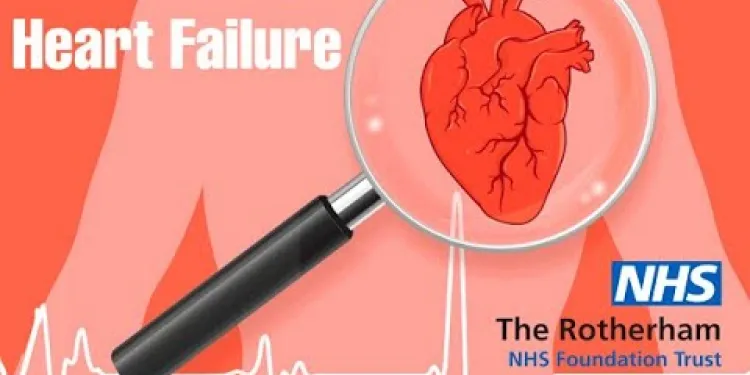
Heart Failure : When the heart becomes stiff?
Relevance: 77%
-
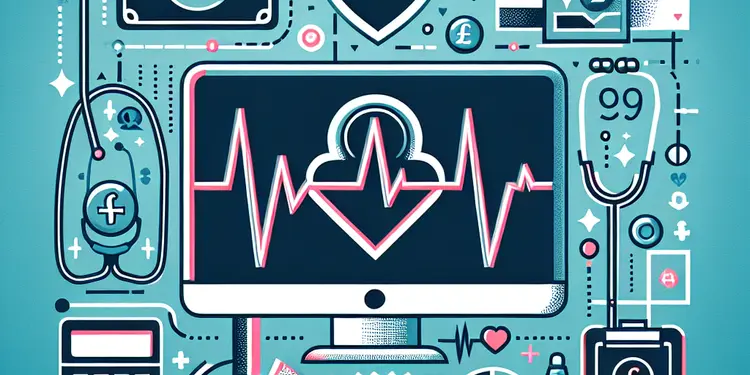
What is the prognosis for someone with heart failure?
Relevance: 76%
-
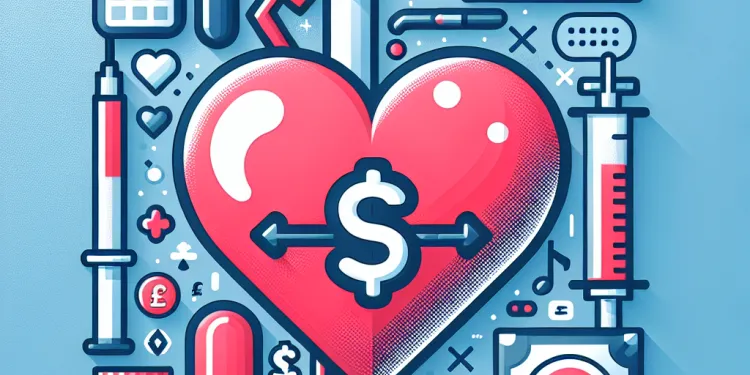
Is Baxdrostat used in treating heart failure?
Relevance: 76%
-
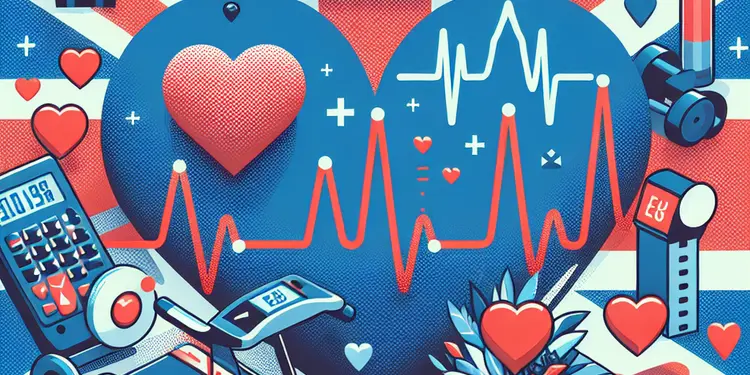
How does exercise impact heart failure?
Relevance: 74%
-
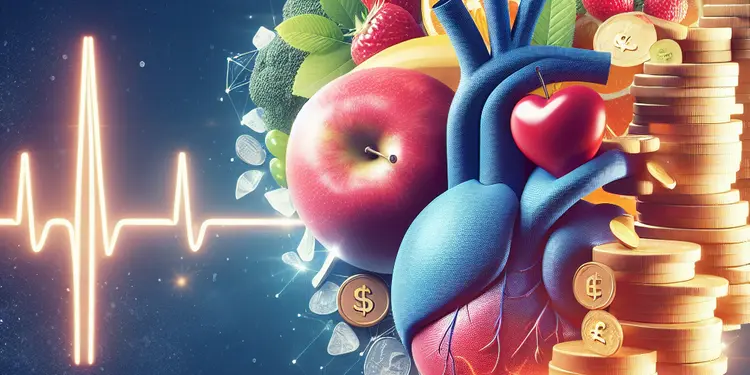
What is the role of diet in managing heart failure?
Relevance: 72%
-
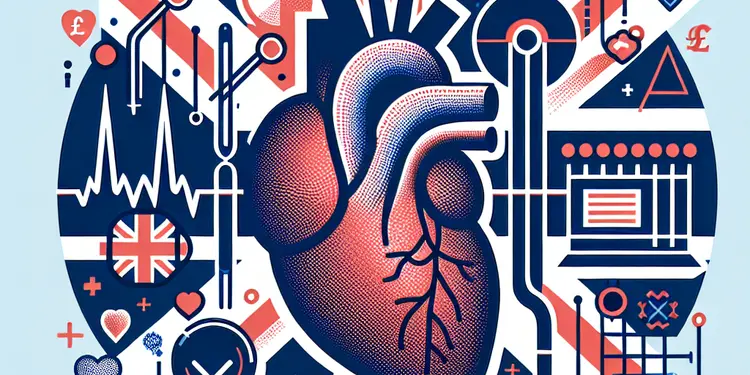
Can heart failure affect other organs?
Relevance: 71%
-
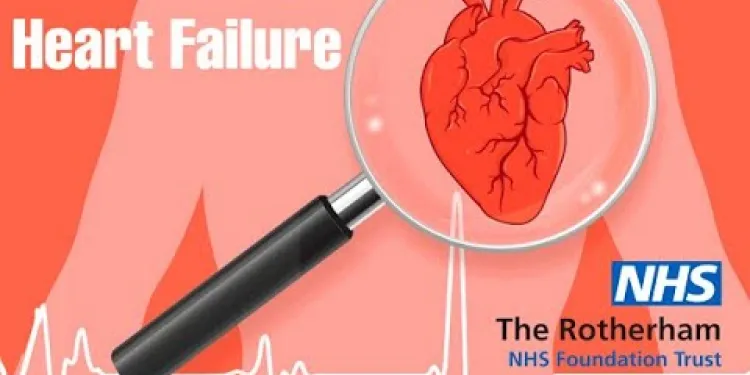
Heart Failure : Treatment and monitoring of fluid retention
Relevance: 70%
-
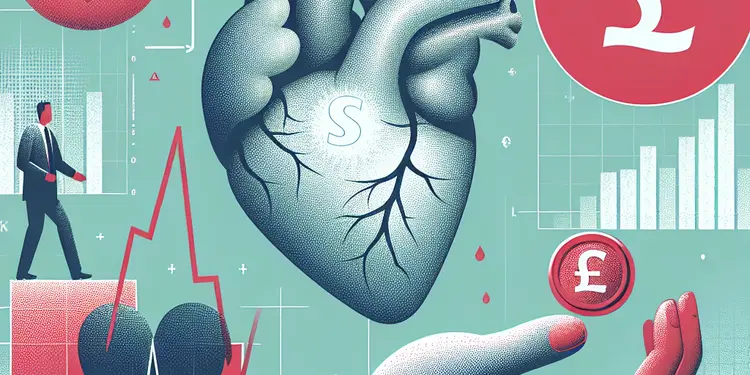
What should I do if I experience symptoms of heart failure?
Relevance: 70%
-

What medications are commonly prescribed for heart failure?
Relevance: 70%
-
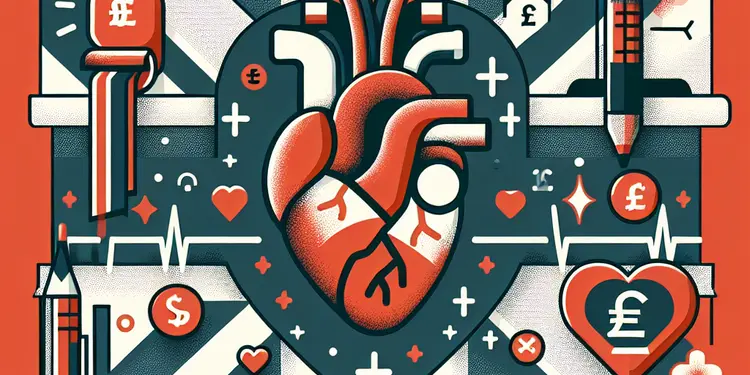
What is heart failure?
Relevance: 62%
-

What are the common symptoms of heart failure?
Relevance: 55%
-

What lifestyle changes can help manage heart failure?
Relevance: 47%
-
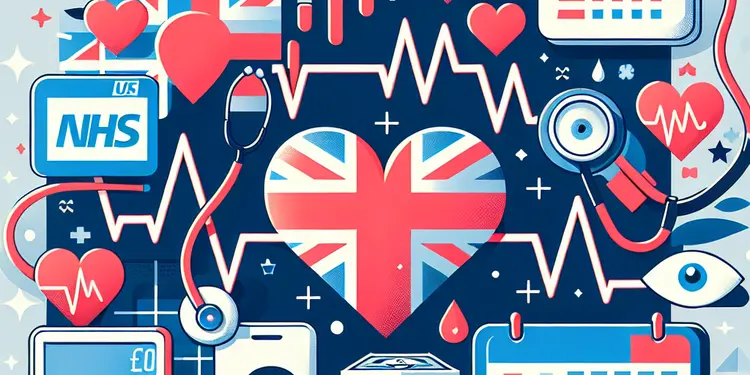
How often should someone with heart failure see their doctor?
Relevance: 47%
-

Is my abnormal heart rhythm dangerous?
Relevance: 47%
-
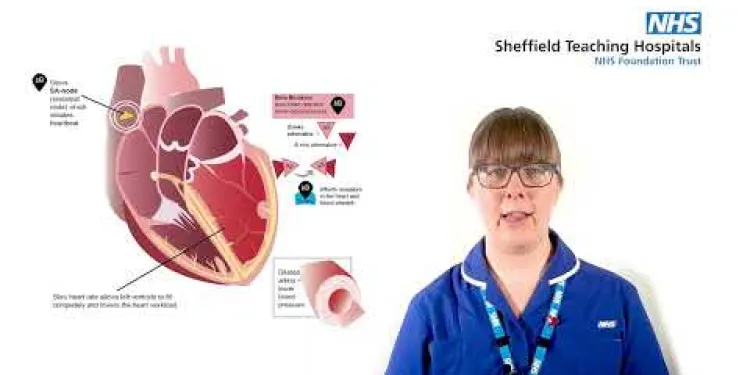
Medicines of the heart
Relevance: 45%
-

Is my abnormal heart rhythm dangerous?
Relevance: 43%
-
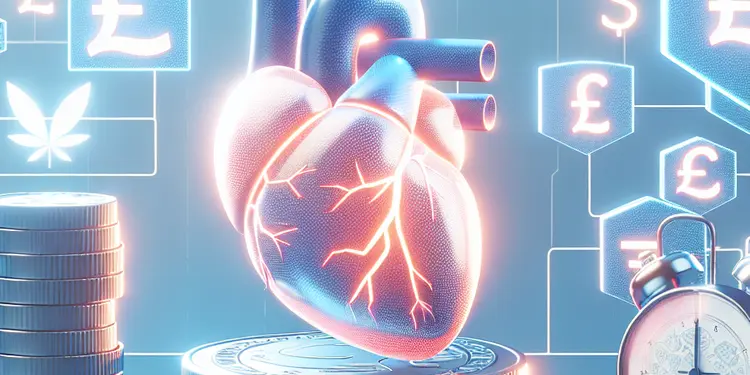
How do beta-blockers contribute to heart attack prevention?
Relevance: 42%
-

Heart stents
Relevance: 41%
-

Does coffee consumption have any long-term heart health effects?
Relevance: 40%
-
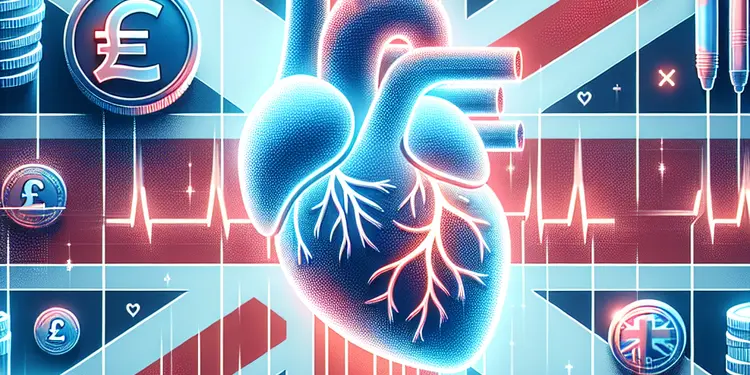
What are the long-term effects of a heart attack?
Relevance: 39%
-
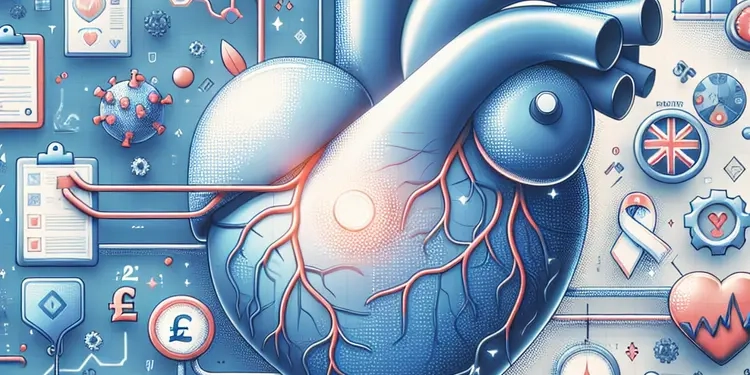
What is heart valve disease?
Relevance: 38%
-

What complications are associated with Type 2 Diabetes?
Relevance: 38%
-
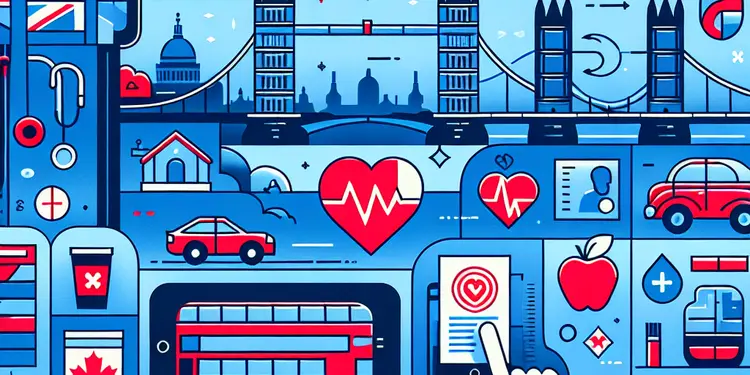
What are the risk factors for a heart attack?
Relevance: 38%
-

Are there specific fats that support heart health?
Relevance: 37%
-
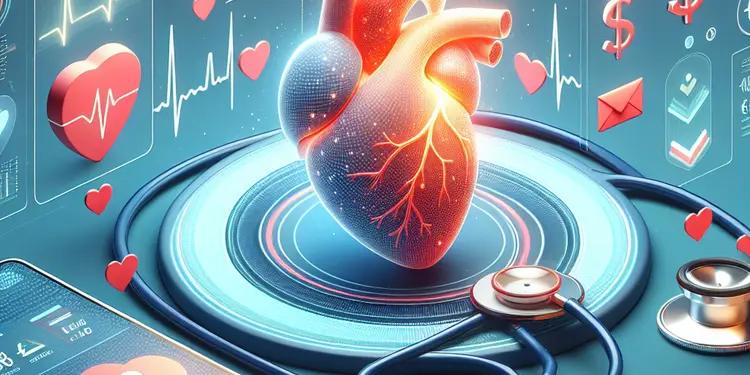
Is it possible to prevent a heart attack?
Relevance: 36%
-
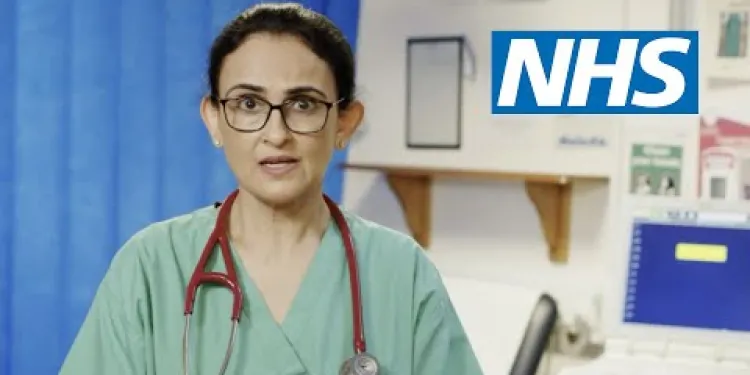
Heart Attack Stories | NHS
Relevance: 36%
-
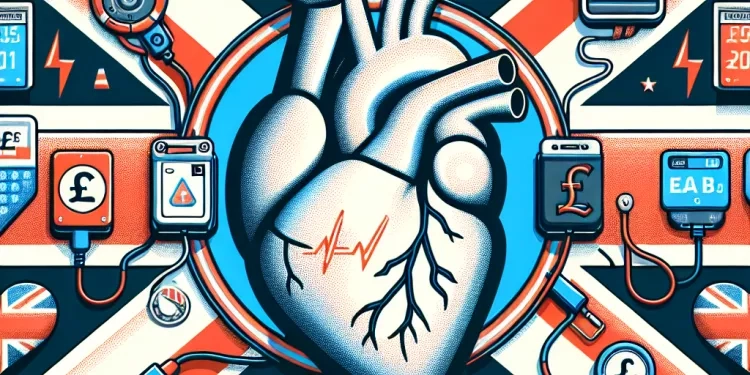
Can a defibrillator restart a stopped heart?
Relevance: 35%
-

Do calcium channel blockers help in preventing heart attacks?
Relevance: 34%
-
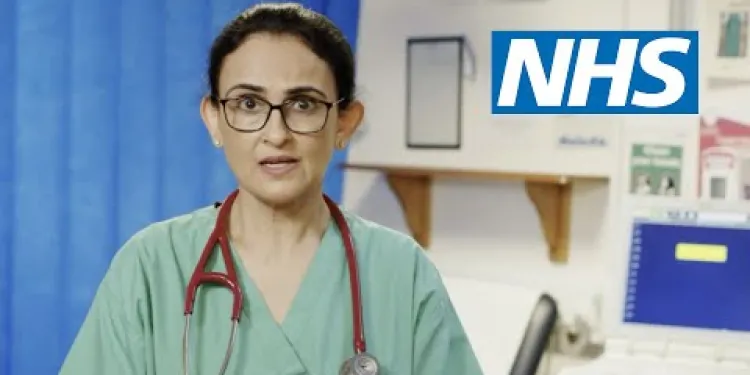
Heart Attack Stories | NHS
Relevance: 34%
-
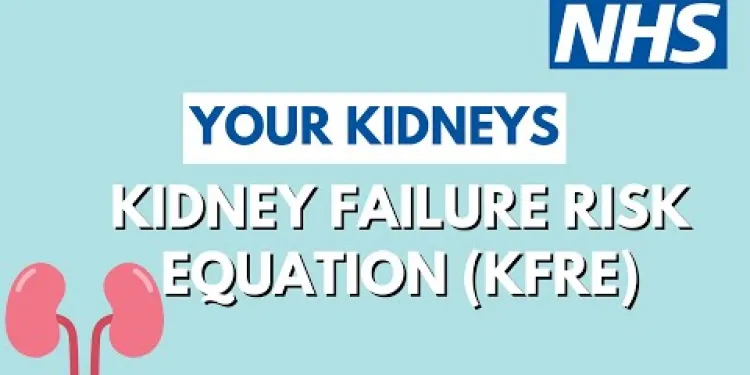
What is my risk of kidney failure with CKD (chronic kidney disease) | UHL NHS Trust
Relevance: 34%
Understanding Heart Failure
Heart failure is a complex medical condition where the heart is unable to pump blood effectively to meet the body’s needs. It is a chronic, progressive condition that can result from various underlying causes, and its impact can vary widely among individuals. Understanding that there are different types of heart failure is crucial for effective diagnosis and management.
Types of Heart Failure
In the realm of cardiology, heart failure is categorized primarily by the side of the heart affected and the nature of the dysfunction. The two main types are left-sided heart failure and right-sided heart failure. Each of these can have distinct causes, symptoms, and implications.
Left-Sided Heart Failure
Left-sided heart failure is the most common form of heart failure. It occurs when the left ventricle, which is the heart's main pumping chamber, fails to efficiently pump blood to the body. This type is further divided into two categories: heart failure with reduced ejection fraction (HFrEF) and heart failure with preserved ejection fraction (HFpEF). In HFrEF, the heart muscle is weakened and cannot pump blood efficiently. HFpEF, on the other hand, occurs when the heart muscle is stiff and does not fill properly with blood during the resting phase between beats.
Right-Sided Heart Failure
Right-sided heart failure, less common than left-sided, occurs when the right side of the heart, which pumps blood into the lungs, struggles to perform its function. This often leads to the accumulation of fluid in the veins, which in turn causes swelling in the legs, ankles, and organs such as the liver. Right-sided heart failure often results from left-sided heart failure, as the increased pressure through the lungs causes the right side of the heart to fail.
Congestive Heart Failure
Congestive heart failure is a term often used interchangeably with heart failure, but more specifically it refers to the stage at which fluid accumulation, known as congestion, occurs. It can affect both the left and right sides of the heart and results in symptoms such as fatigue, shortness of breath, and peripheral oedema, which is swelling caused by fluid retention.
Conclusion
Understanding the different types of heart failure is crucial for tailoring the treatment to the patient’s specific needs. Accurate diagnosis often involves imaging and blood tests, and treatment may include lifestyle changes, medication, and in some cases, surgical interventions. Awareness and early detection are key to managing the condition effectively and improving quality of life for those affected.
Understanding Heart Failure
Heart failure is when the heart cannot pump blood well. This means the body doesn’t get enough blood. It is a long-lasting condition that can slowly get worse. Many things can cause heart failure. It affects people in different ways. Knowing the different types of heart failure helps doctors treat it better.
Types of Heart Failure
Doctors talk about heart failure based on which side of the heart has trouble. There are two main types: left-sided heart failure and right-sided heart failure. Each type has different causes and symptoms.
Left-Sided Heart Failure
Left-sided heart failure is the most common. It happens when the left part of the heart cannot pump blood well. There are two kinds: one where the heart muscle is weak and another where the heart muscle is stiff. When the muscle is weak, it cannot pump well. When the muscle is stiff, it cannot fill with blood properly.
Right-Sided Heart Failure
Right-sided heart failure is less common. It happens when the right side of the heart has trouble sending blood to the lungs. This can cause fluid to build up in the body, making the legs and ankles swell. Right-sided heart failure often follows left-sided heart failure.
Congestive Heart Failure
Congestive heart failure is when fluid builds up in the body. This can happen with both left and right-sided heart failure. It can cause tiredness, trouble breathing, and swelling in the body.
Conclusion
Knowing about the different types of heart failure helps doctors find the right treatment. Tests and lifestyle changes can help manage the condition. It’s important to find heart failure early so people can feel better and live well. Tools that might help include reminder apps for taking medicine and food planners to keep track of healthy eating.
Frequently Asked Questions
What is heart failure?
Heart failure is a condition in which the heart cannot pump enough blood to meet the body's needs.
Are there different types of heart failure?
Yes, there are several types of heart failure, including left-sided heart failure, right-sided heart failure, and congestive heart failure.
What is left-sided heart failure?
Left-sided heart failure occurs when the left ventricle doesn't pump efficiently, causing fluid to build up in the lungs.
What is right-sided heart failure?
Right-sided heart failure happens when the right side of the heart cannot pump blood efficiently, leading to fluid accumulation in the abdomen, legs, and feet.
What is congestive heart failure?
Congestive heart failure is a term used to describe heart failure that leads to fluid buildup in the body, causing swelling and congestion.
What causes heart failure?
Heart failure can be caused by coronary artery disease, high blood pressure, heart attack, and other underlying conditions affecting the heart.
How is heart failure diagnosed?
Heart failure is diagnosed through medical history, physical exams, and tests like echocardiograms, MRI, blood tests, and stress tests.
What are the symptoms of heart failure?
Symptoms include shortness of breath, fatigue, swollen legs, rapid heartbeat, and persistent cough or wheezing.
Can heart failure be treated?
Yes, heart failure can be managed with medications, lifestyle changes, and sometimes surgical procedures or devices.
What medications are used to treat heart failure?
Medications include ACE inhibitors, beta-blockers, diuretics, and aldosterone antagonists, among others.
Is heart failure the same as a heart attack?
No, a heart attack occurs when blood flow to the heart is blocked, while heart failure is the heart's inability to pump effectively.
How can lifestyle changes help manage heart failure?
Lifestyle changes such as a healthy diet, regular exercise, smoking cessation, and weight management can improve heart failure symptoms.
Are there special diets recommended for heart failure patients?
Yes, a low-sodium diet and fluid restriction can be important for managing heart failure symptoms.
What is the prognosis for someone with heart failure?
The prognosis for heart failure varies based on the severity, underlying cause, and how well the condition is managed.
Can heart failure lead to other health complications?
Yes, heart failure can lead to complications such as kidney damage, liver damage, and heart rhythm problems.
What is ejection fraction and why is it important in heart failure?
Ejection fraction measures how much blood the left ventricle pumps out during each contraction, providing an indicator of heart function.
Is exercise safe for people with heart failure?
Moderate exercise can be beneficial for heart failure patients, but it's important to consult a doctor for a tailored exercise plan.
How does heart failure affect daily life?
Heart failure can limit physical activity, cause fatigue, and necessitate lifestyle modifications to manage symptoms effectively.
What are the risk factors for developing heart failure?
Risk factors include hypertension, diabetes, obesity, smoking, and a history of heart attacks or coronary artery disease.
Can heart failure be prevented?
While not all cases can be prevented, lowering risk factors through a healthy lifestyle and managing existing conditions can reduce the risk of heart failure.
What is heart failure?
Heart failure means the heart is not working as well as it should. The heart is a muscle that pumps blood. If it is not pumping strongly, it is called heart failure.
If someone has heart failure, they might feel tired, weak, or out of breath.
People can use pictures or videos to help understand more about heart failure.
Heart failure happens when the heart does not pump enough blood for the body. This means that the body does not get the blood it needs.
If reading is difficult, try using tools like audiobooks or reading apps that read to you. You can also ask someone to explain what you read.
Are there different types of heart failure?
Yes, there are different types of heart problems.
1. Heart not pumping well: The heart cannot push blood out strongly.
2. Heart is stiff: The heart cannot fill up with enough blood.
If you find this confusing, ask someone to help explain it. You can also look at pictures or videos online to understand.
There are different kinds of heart failure. These include:
- Left-sided heart failure
- Right-sided heart failure
- Congestive heart failure
If you find this hard to read, you can use tools that read text aloud. Or you can ask someone to help you understand it better.
What is Left-Sided Heart Failure?
Left-sided heart failure happens when the left side of the heart is not strong enough. The heart can’t pump blood to the body like it should.
Signs to Look For:
- Trouble breathing
- Feeling very tired
- Swelling in the legs and feet
Helpful Tips:
- Use pictures to help understand.
- Ask a doctor or nurse for simple explanations.
- Watch videos about heart health for kids.
Left-sided heart failure happens when the left side of the heart doesn't pump blood properly. This can cause fluid to build up in the lungs.
What is Right-Sided Heart Failure?
Right-sided heart failure happens when the right side of your heart is not working as it should. The heart is a muscle that pumps blood. When it is weak, it cannot pump blood properly. This can make you feel tired and weak.
You might also have swelling in your legs or your belly because the blood is not moving well through your body.
It is important to see a doctor if you feel these symptoms. A doctor can help you feel better and find the right treatment.
Here are some things you can do to help yourself:
- Eat healthy foods.
- Exercise gently, like walking.
- Take your medicine as the doctor says.
Right-sided heart failure is when the right side of your heart does not work well. This makes blood build up in your tummy, legs, and feet.
Here are some things to help:
- Use pictures to understand better.
- Ask someone to read with you.
- Take breaks if you need them.
What is congestive heart failure?
Congestive heart failure is when the heart does not pump blood well. This can make you feel very tired or short of breath.
Here are some ways to make it easier to understand:
- Ask Questions: If you do not understand, ask a doctor or a nurse to explain.
- Use Pictures: Look at pictures of the heart to see how it works.
- Simple Words: Use books or websites with simple words about the heart.
If you are worried about your heart, tell an adult or a doctor.
Congestive heart failure is when the heart is not working well. This can cause a lot of fluid, like water, to stay in the body. This fluid can make parts of the body swell up and feel tight.
Why does the heart stop working well?
The heart can stop working well for different reasons:
- It might get weak and tired.
- It could have to work too hard.
- Sometimes, the heart gets hurt.
If you need help reading, you can use pictures or ask someone to read with you.
Heart problems might happen if you have blocked heart pipes (coronary artery disease), high blood pressure, a heart attack, or other heart issues.
How do doctors find out if someone has heart failure?
Doctors find out if someone has heart failure by asking about their health history, doing physical check-ups, and doing tests. These tests include looking at the heart with special pictures (called echocardiograms and MRI), blood tests, and checking how the heart works when you exercise (stress tests).
What happens when the heart is not working well?
You might feel out of breath. You could get tired easily. Your legs might swell up. Your heart could beat very fast. You might cough a lot or make a wheezing sound when you breathe.
Can doctors help when the heart is not working well?
Yes, doctors can help. They can give you medicine. They can also tell you how to eat healthy food and get exercise. These things can help your heart. You may need to visit the doctor often. Ask someone to go with you to the doctor. They can help you understand what the doctor says.
Yes, you can take care of heart failure. You can take medicine. You can change how you live. Sometimes, doctors may do surgery or give you a special device to help.
What medicines help with heart problems?
Medications include ACE inhibitors, beta-blockers, water pills, and aldosterone blockers. There are also other types of medications.
Is heart failure the same as a heart attack?
No, they are different.
Heart failure means the heart is not working as well as it should. The heart is weak and can't pump blood properly.
Heart attack happens when blood can't get to part of the heart. This part gets damaged because of lack of blood.
You can use pictures or videos to better understand these health problems. Talking to a doctor or using simple health websites can help too.
No, a heart attack and heart failure are not the same. A heart attack happens when something blocks the blood flow to the heart. Heart failure happens when the heart can't pump blood well.
How can changes in your daily life help with heart problems?
Sometimes, the heart doesn't work well. But you can feel better by making some changes in your daily life. Here are some simple ways to help your heart:
- Eat healthy food: Choose fruits, vegetables, and foods that are good for your heart.
- Exercise regularly: Move your body every day, like walking, to keep your heart strong.
- Avoid smoking: Try not to smoke because it can hurt your heart.
- Relax: Take time to relax and do things that make you happy, like reading or playing.
- Follow doctor's advice: Always listen to your doctor and take any medicine they give you.
If reading is hard, you can ask someone to help read with you. You can also listen to books or watch videos about the heart.
Making changes in how we live can help with heart problems. Eating healthy food, exercising often, not smoking, and managing our weight can make us feel better.
What foods should people with heart problems eat?
People with heart problems, like heart failure, should eat healthy foods. Here are some tips:
- Eat lots of fruits and vegetables.
- Choose whole grain bread and pasta.
- Pick lean meats like chicken or fish.
- Try to eat less salt.
- Drink plenty of water.
If you need help, ask a doctor or a dietitian. They can help you make a good plan. You can also use tools like picture charts or apps to remember what to eat.
Yes, eating less salt and drinking less water can help people with heart problems feel better.
What will happen to someone with heart failure?
Heart failure means the heart is not working well. This can be serious, but doctors can help. It's important to take medicine and visit the doctor.
Here are some tips to help understand heart failure:
- Ask your doctor to explain what heart failure means.
- Use pictures or diagrams to understand better.
- Write down what the doctor says so you can remember.
- Bring someone with you to the doctor to help you listen and ask questions.
Remember, the doctor can give you medicine to help your heart. It’s important to take the medicine every day and see the doctor often.
If someone has heart failure, how well they can be can be different for each person. It depends on how bad the heart failure is, why it started, and how well doctors and the person take care of it.
Can having heart failure cause other health problems?
If your heart is not working well, it can affect the rest of your body. This can cause other health problems. Here are some things that might happen:
- Your lungs might not get enough oxygen, making it hard to breathe.
- Your body might hold extra water, making you feel swollen.
- You might feel very tired or weak.
If you or someone you know is having these problems, a doctor can help. Talking to a doctor or nurse can make things better.
Using pictures or drawings can help you understand better. You can also ask a friend or family member to read with you. These things can make it easier to learn new information.
Yes, heart failure can cause other problems. It can hurt the kidneys, liver, and heart rhythm.
What is Ejection Fraction and Why Does It Matter for Heart Problems?
The heart is a muscle that pumps blood around your body.
Ejection Fraction (EF) is a measure of how well your heart is pumping.
It tells us how much blood the heart pushes out each time it beats.
If the EF is low, the heart might not be working well. This can lead to heart problems.
Knowing your EF can help doctors decide on treatment.
Support tools like pictures and simple charts can help you understand more about EF.
When the heart pumps, it pushes blood out. Ejection fraction is a way to see how well the heart's left side is working by showing how much blood is pushed out each time it beats.
Can people with heart problems do exercise safely?
Doing some exercise can be good for people with heart problems. But it's important to talk to a doctor to get the right exercise plan for you.
What is it like to live with heart failure?
Heart failure can make it hard to move around. It can make you feel very tired. You might need to change how you live to feel better.
What can make heart problems more likely?
The things that can make you more likely to have heart problems are high blood pressure, diabetes, being very overweight, smoking, and if you or your family have had heart troubles before.
Can we stop heart failure from happening?
Yes, we can try to stop heart problems. Here are some easy tips:
- Eat healthy food like fruits and veggies.
- Do exercise, like walking or playing, most days.
- Don’t smoke. If you do, try to stop.
- Visit the doctor for check-ups.
You can use tools like a calendar to track your exercise, or reminders to take medicine. Ask someone you trust for help if you need it.
You can't always stop heart problems, but you can do some things to help. Try to be healthy and take care of any health problems you have. This can help make heart problems less likely.
Useful Links
This website offers general information and is not a substitute for professional advice.
Always seek guidance from qualified professionals.
If you have any medical concerns or need urgent help, contact a healthcare professional or emergency services immediately.
Some of this content was generated with AI assistance. We’ve done our best to keep it accurate, helpful, and human-friendly.
- Ergsy carfully checks the information in the videos we provide here.
- Videos shown by Youtube after a video has completed, have NOT been reviewed by ERGSY.
- To view, click the arrow in centre of video.
- Most of the videos you find here will have subtitles and/or closed captions available.
- You may need to turn these on, and choose your preferred language.
- Go to the video you'd like to watch.
- If closed captions (CC) are available, settings will be visible on the bottom right of the video player.
- To turn on Captions, click settings .
- To turn off Captions, click settings again.
More Items From Ergsy search
-

Are there different types of heart failure?
Relevance: 100%
-

Heart Failure : Symptoms of heart failure
Relevance: 90%
-

Heart Failure : What is heart failure?
Relevance: 88%
-

Heart Failure : Heart failure that cannot pump
Relevance: 85%
-

Heart Failure : The normal heart
Relevance: 83%
-

Heart failure introduction
Relevance: 81%
-

What causes heart failure?
Relevance: 81%
-

Can heart failure be cured?
Relevance: 78%
-

Can heart failure be prevented?
Relevance: 78%
-

How is heart failure diagnosed?
Relevance: 78%
-

Heart Failure : When the heart becomes stiff?
Relevance: 77%
-

What is the prognosis for someone with heart failure?
Relevance: 76%
-

Is Baxdrostat used in treating heart failure?
Relevance: 76%
-

How does exercise impact heart failure?
Relevance: 74%
-

What is the role of diet in managing heart failure?
Relevance: 72%
-

Can heart failure affect other organs?
Relevance: 71%
-

Heart Failure : Treatment and monitoring of fluid retention
Relevance: 70%
-

What should I do if I experience symptoms of heart failure?
Relevance: 70%
-

What medications are commonly prescribed for heart failure?
Relevance: 70%
-

What is heart failure?
Relevance: 62%
-

What are the common symptoms of heart failure?
Relevance: 55%
-

What lifestyle changes can help manage heart failure?
Relevance: 47%
-

How often should someone with heart failure see their doctor?
Relevance: 47%
-

Is my abnormal heart rhythm dangerous?
Relevance: 47%
-

Medicines of the heart
Relevance: 45%
-

Is my abnormal heart rhythm dangerous?
Relevance: 43%
-

How do beta-blockers contribute to heart attack prevention?
Relevance: 42%
-

Heart stents
Relevance: 41%
-

Does coffee consumption have any long-term heart health effects?
Relevance: 40%
-

What are the long-term effects of a heart attack?
Relevance: 39%
-

What is heart valve disease?
Relevance: 38%
-

What complications are associated with Type 2 Diabetes?
Relevance: 38%
-

What are the risk factors for a heart attack?
Relevance: 38%
-

Are there specific fats that support heart health?
Relevance: 37%
-

Is it possible to prevent a heart attack?
Relevance: 36%
-

Heart Attack Stories | NHS
Relevance: 36%
-

Can a defibrillator restart a stopped heart?
Relevance: 35%
-

Do calcium channel blockers help in preventing heart attacks?
Relevance: 34%
-

Heart Attack Stories | NHS
Relevance: 34%
-

What is my risk of kidney failure with CKD (chronic kidney disease) | UHL NHS Trust
Relevance: 34%


